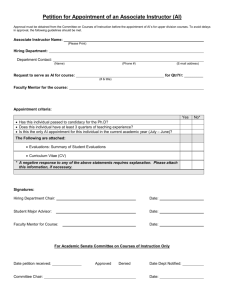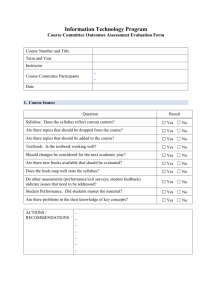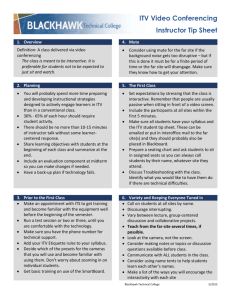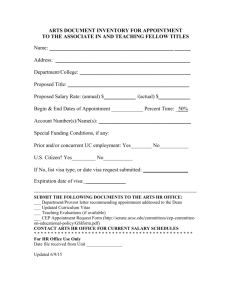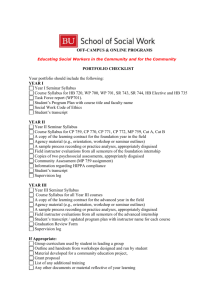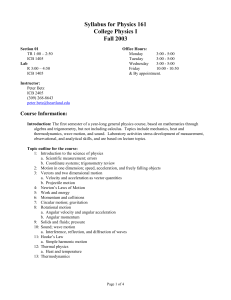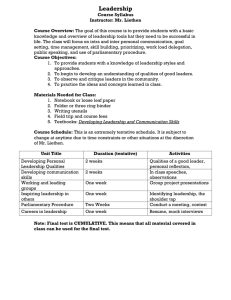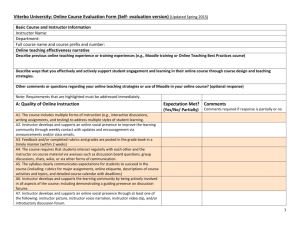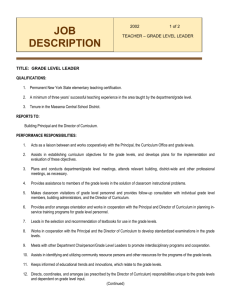Academic Etiquette
advertisement
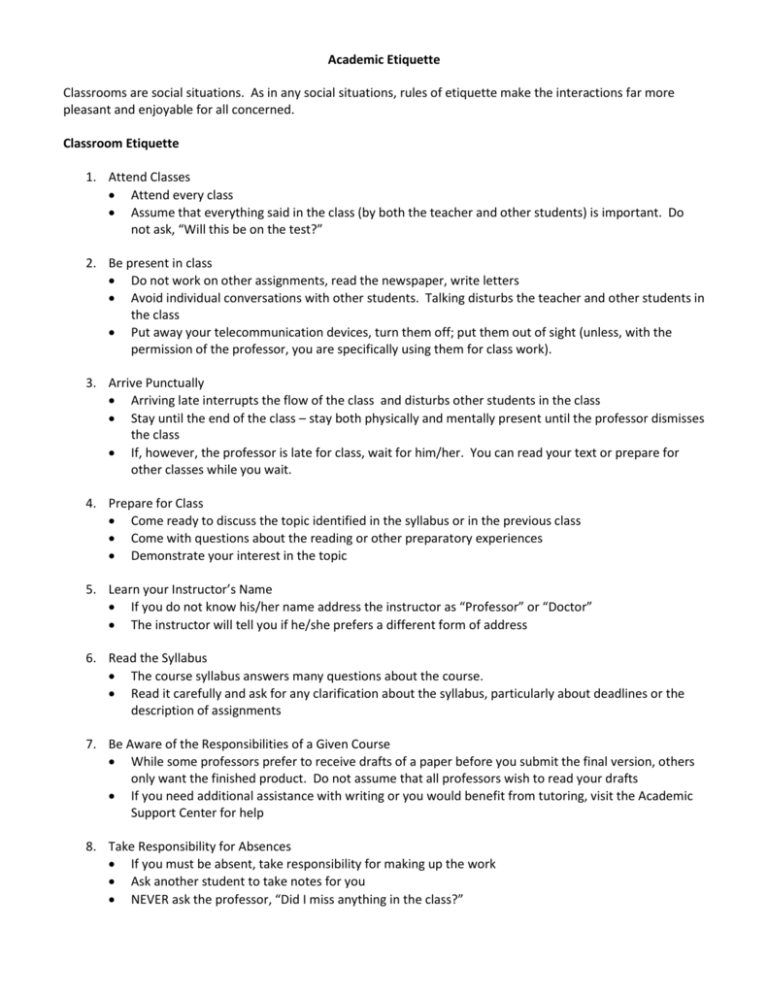
Academic Etiquette Classrooms are social situations. As in any social situations, rules of etiquette make the interactions far more pleasant and enjoyable for all concerned. Classroom Etiquette 1. Attend Classes Attend every class Assume that everything said in the class (by both the teacher and other students) is important. Do not ask, “Will this be on the test?” 2. Be present in class Do not work on other assignments, read the newspaper, write letters Avoid individual conversations with other students. Talking disturbs the teacher and other students in the class Put away your telecommunication devices, turn them off; put them out of sight (unless, with the permission of the professor, you are specifically using them for class work). 3. Arrive Punctually Arriving late interrupts the flow of the class and disturbs other students in the class Stay until the end of the class – stay both physically and mentally present until the professor dismisses the class If, however, the professor is late for class, wait for him/her. You can read your text or prepare for other classes while you wait. 4. Prepare for Class Come ready to discuss the topic identified in the syllabus or in the previous class Come with questions about the reading or other preparatory experiences Demonstrate your interest in the topic 5. Learn your Instructor’s Name If you do not know his/her name address the instructor as “Professor” or “Doctor” The instructor will tell you if he/she prefers a different form of address 6. Read the Syllabus The course syllabus answers many questions about the course. Read it carefully and ask for any clarification about the syllabus, particularly about deadlines or the description of assignments 7. Be Aware of the Responsibilities of a Given Course While some professors prefer to receive drafts of a paper before you submit the final version, others only want the finished product. Do not assume that all professors wish to read your drafts If you need additional assistance with writing or you would benefit from tutoring, visit the Academic Support Center for help 8. Take Responsibility for Absences If you must be absent, take responsibility for making up the work Ask another student to take notes for you NEVER ask the professor, “Did I miss anything in the class?” If needed, make an appointment with the instructor to go over missed work. But remember that this is a privilege, not a right. The professor already covered the work in the class which you missed. 9. Meet Deadlines Discuss your concerns about not meeting a deadline BEFORE the assignment is due. If, for a good reason (not just because you procrastinated), you will not be able to meet a deadline, make an appointment with your professor to discuss the possibility of submitting your assignment late. Recognize that if you cannot meet a deadline for whatever reason, this may well be reflected in your grade for that assignment. 10. Eat Outside of Class Time Unless you have back- to- back classes, eat before or after class or on break If you have no other time but to eat during class, ask the professor if that is acceptable If it is acceptable to eat during class, choose foods that are packaged in such a way that it will not disturb other students around you when you open them. Meeting with a Professor Outside of Class Time 1. Determine Why You Wish to Meet with the Professor Be clear about the purpose of your meeting. Are you meeting to clarify something talked about in class, to discuss a grade, to ask for a letter of recommendation? 2. Make an Appointment Do not rush up to a professor after class and assume he/she has time to meet with you on the spot. Make an appointment at a mutually convenient time When asking for a meeting with a professor be as clear as you can about the purpose of the meeting. You may visit the professor during his or her office hours, but the professor may not have a long time to meet with you if other students are waiting. In that case, you may need to be make another appointment 3. Prepare for the Meeting Everyone’s time is important, so be prepared to state the purpose for your meeting as concisely as possible Have all the materials you will need, for example, your textbook if you need clarification, the paper that you wish to discuss 4. Arrive on Time for your Meeting Locate the professor’s office before the meeting or leave plenty of time to arrive on time if you are not sure of the location If you will be unavoidably delayed, call to say when you will arrive or to reschedule the meeting 5. At the Meeting Introduce yourself. Unless the professor calls you by name, do not assume that the professor knows who you are State your purpose for the meeting Be sure to thank the professor for his/her time when you leave
